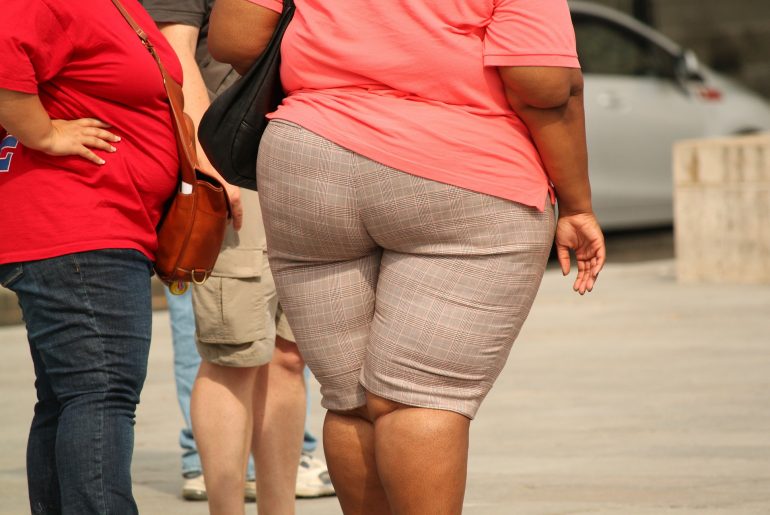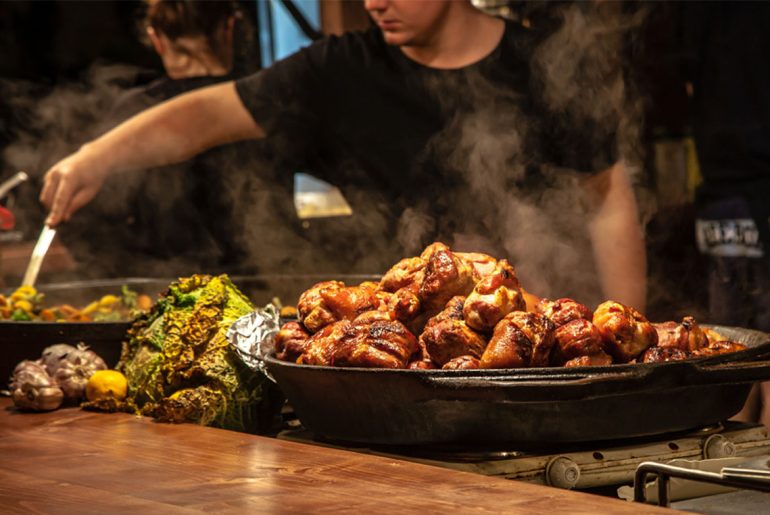We’ve all been told that if you eat less calories and exercise regularly, you’ll lose weight. It’s harder than it sounds, but it’s been touted as the only true path to weight loss success. But the Journal of the American Medical Association is saying this just isn’t so. While exercise still stands as an important part of weight loss, smaller portions and fewer calories have less to do with weight loss than we’ve been taught. Instead, the study pinpoints exactly what dieters much ditch in order to lose weight: refined grains, processed foods and foods with added sugar — no surprises there. The research was conducted by Christopher D. Gardner, director of nutrition studies at Stanford Prevention Research Center. Around 600 people were split into two different diet groups. One at “healthy” low carb and the other “healthy” low fat. Dietitians trained both groups to eat home-cooked, minimally processed whole foods. Both…
Here’s how much you can eat over the holidays to lose or maintain weight
You no surprise that you’re likely to pack on a few pounds over the holidays. The extra appetizers, cocktails with friends, side dishes, desserts and post-meal champagne can quickly add up to an average of 7,000 calories on a holiday — more than triple the daily recommendation. Shockingly, 29 percent of people estimated they would eat fewer than 3,000 calories over the course of Christmas Day. While it’s just one day — and who counts calories on Christmas anyway? — it’s worth taking a peek at MealKitt’s photo series on portion control. Julian Gaine, the CEO of the British company known for its portion control tool, released photos showing what Christmas Day plates should look like if you’re looking to lose, maintain or gain weight. While this might not be your exact meal, the images can serve as a guide which you use to gauge how full your plate should be. For those…
U.S. obesity epidemic not budging
NEW YORK — America’s weight problem isn’t getting any better, according to new government research. Overall, obesity figures stayed about the same: About 40 percent of adults are obese and 18.5 percent of children. Those numbers are a slight increase from the last report but the difference is so small that it could have occurred by chance. Worrisome to experts is the rate for children and teenagers, which had hovered around 17 percent for a decade. The 2-to-5 age group had the biggest rise. The years ahead will show if that’s a statistical blip or marks the start of a real trend, said the report’s lead author, Dr. Craig Hales of the Centers for Disease Control and Prevention. The bad news is that the numbers didn’t go down, experts say. In recent years, state and national health officials have focused on obesity in kids, who were the target of the…
Office workers consume a shocking number of extra calories in snacks every year
Glazed donuts, pretzels, salted peanuts. What is it about a 9-5 desk job that makes you want to eat all the darn time? You barely finish breakfast before your stomach is rumbling for a mid-morning snack or lunch. And let’s not even talk about those late afternoon hunger pangs. Whether it’s boredom or temptation that has you giving in to the slice of cake, the calories consumed present a huge cause for concern. According to a recent survey by Dutch food brand Kallø, all of those extra calories add up to a shocking 100,000 extra calories every year for the average woman. Your eyes probably just popped a little bit, and you might have even put down that potato chip — and that’s a good thing. All those extra calories are, of course, seriously adding to your waistline. 100,000 calories is the equivalent to eating 193 double cheeseburgers or 502 bars of chocolate. If you go…
Smelling food can make you fat, new study shows
Your nose might be sabotaging your weight loss efforts. New research has revealed that simply smelling food can make you pack on the pounds. Yikes! The study, conducted by UC Berkeley researchers and published in Cell Metabolism, used three groups of mice — a set of “super-smellers,” a group whose smell was temporarily disabled, and a control group. The mice ate the same amount of a “Burger King diet.” When the mice weighed in at the end of the study, those with the impaired sense of smell gained the least weight — a mere 10 percent of their body weight, while the “super smellers” gained the most weight — nearly doubling in size. The findings show that your olfactory system affects your appetite as well as your metabolism. The normal mice, of course, ballooned in size too. “In the context of food and appetite, this is really novel,” lead study author Celine Riera told SF Gate. However,…





